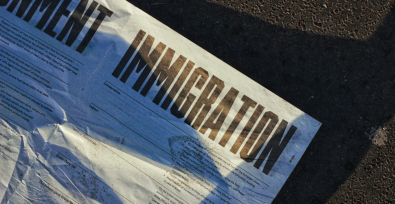In a significant development in U.K. immigration policy, the debate over the Rwanda (Asylum and Immigration) Bill, recently renamed the Safety of Rwanda Bill, has intensified. Central to this controversy is the treatment of victims of modern slavery, with the legislative outcome heavily impacting their rights and safety.
Legislative standoff
After a prolonged standoff between the unelected House of Lords and the elected House of Commons, expectations were set for the Safety of Rwanda Bill to pass on Wednesday. However, the Lords pushed for amendments, leading to another anticipated vote next week. This legislative ping-pong between the two houses underscores the complexity of integrating strict immigration controls with human rights protections, especially concerning those escaping forced labor and exploitation.
“I can only draw the conclusion that the Rwanda scheme is insensitive, immoral, and unwise. The Government fail to see the implications and risk of re-traumatisation that the Rwanda plan – which could go ahead if the Safety of Rwanda Bill passes – poses for victims of modern slavery and human trafficking.”1
Impact on victims of modern slavery
The government’s decision to not exempt victims of modern slavery from the Rwanda deportation scheme has sparked significant criticism. Instead of providing clear protections, the government proposed an amendment to produce an annual report on the policy’s impact on these victims. Critics argue this measure is insufficient, highlighting a broader lack of commitment to the well-being of modern slavery victims within U.K. immigration policies.
“I think that all [removing modern slavery survivors to Rwanda] will be viewed as a deterrent by people experiencing modern slavery from coming forward to authorities and making it more difficult to hold the perpetrators accountable for their actions.”2
Modern slavery victims are left in a precarious position, potentially subject to further harm and exploitation, underscoring the urgent need for more robust protective measures in the legislative framework. As debates continue, the question remains: can the U.K. reconcile its immigration enforcement policies with its commitments to protect human rights?
We need anti-trafficking immigration policies!
We fear that without specific protections, victims of modern slavery may be further victimized by the policies designed to control immigration. The bill’s implications, therefore, extend beyond immigration control to touch on fundamental issues of human rights and the ethical treatment of vulnerable populations. That is why we are calling on governments, including the U.K.’s leaders, to implement genuine immigration laws that empower trafficking victims by providing safe migration routes. Add your signature today!







Freedom United is interested in hearing from our community and welcomes relevant, informed comments, advice, and insights that advance the conversation around our campaigns and advocacy. We value inclusivity and respect within our community. To be approved, your comments should be civil.